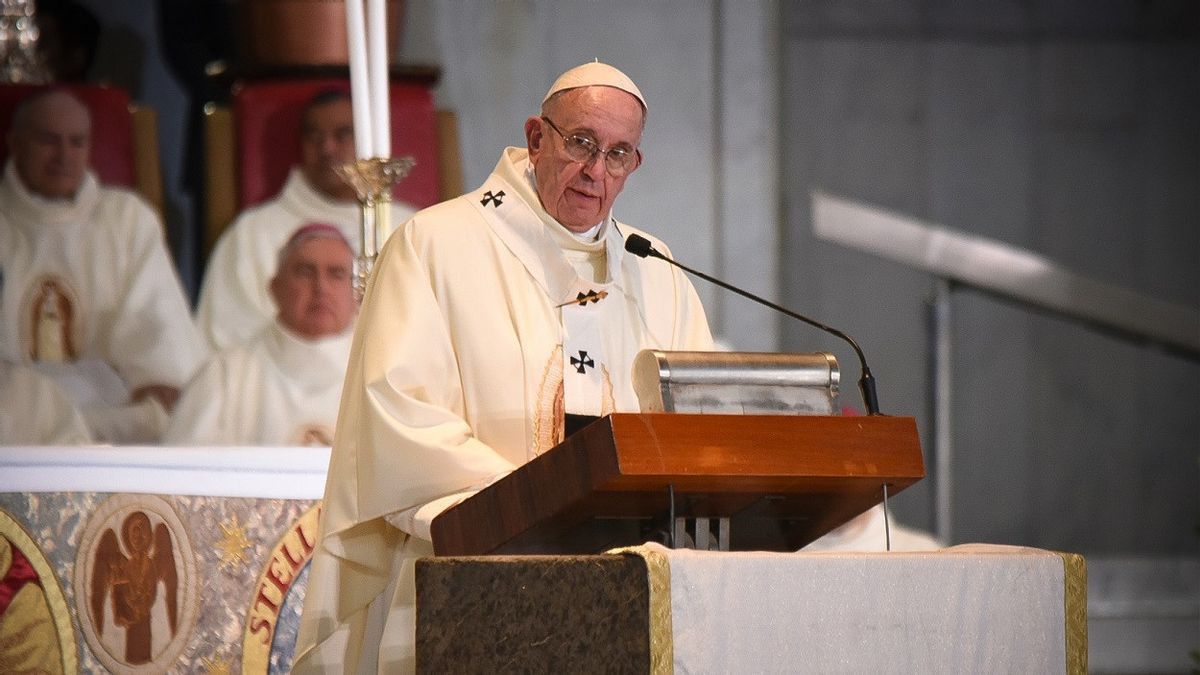YOGYAKARTA - "Pope", a title that has a long history and deep meaning in Christian tradition, is the supreme leader in the Catholic Church. But do you know the reason why the Catholic church leader is called the Pope? Let's discuss it!
The reason is, this title has many aspects of the theology, historical, and cultural that distinguish it from being the figure who holds the highest spiritual authority for more than one billion Catholics around the world. This will discuss the origin of the term "Pope", and its meaning, and why this term is still in use today.
The term "Pope" comes from the Latin word "Papa," which means "father." In a religious context, "Papa" is used as a form of respect for a spiritual leader who is considered a father figure for the faith community. This term was then taken by the Catholic Church to name his supreme leader, who was seen as the successor to St. Peter, one of the twelve of Jesus' students.
According to the Catholic belief, St. Peter is considered the first Pope, based on the belief that Jesus gave him special authority to lead the church. In the Bible of Matthew 16:18-19, Jesus said to Petrus, "My son is Petrus, and on this rock I will establish the congregation-Ku... I will give you the key to the Kingdom of Heaven." This verse forms the theological basis that supports the belief that Petrus and his successor, called the Pope, have the highest authority in the Catholic Church.
The title "Pope" not only shows the position of authority, but also describes the role of spiritual leader who must guide, protect, and care for his people, similar to a father to his children. The Pope is seen as "Vikaris of Christ" or Christ's representative in the world, meaning he has the responsibility to continue Christ's mission on earth. This includes teaching the teachings of Christ, supervising church doctrine, as well as being a moral voice on various issues facing the world.
As the supreme leader, the Pope also has an important role in decision-making that affects the entire Catholic Church. He has the authority to establish church policies, appoint and dismiss bishops, as well as issue important documents that guide the spiritual life of Catholics. On several occasions, the Pope also has the right to speak "ex cathedra," which means giving teachings that are considered ineligible in terms of faith and morals.
Evolution Of The Title "Pope" In History
Although the title "Pope" has existed since the beginning of the church's history, its use as an exclusive term for the leader of the Catholic Church in Rome is growing gradually. At first, the term "Papa" was used by various Christian leaders throughout the region, including in Alexandria and Australia. However, as the influence and power of the Bishop of Rome grew, this title slowly became exclusively related to the leaders of the Catholic Church.
In the 5th century, the Bishop of Rome began to put more emphasis on their authority as successors to Petrus, and the title "Pope" was increasingly recognized as a special designation for the Bishop of Rome. One of the most famous Popes of this time was Pope Leo I (Pope Leo Agung), who explicitly stated that as Petrus' successor, he had the highest authority over the entire church. This claim was supported by the Kalsedon Congregation's decision in 451, which strengthened the Pope's position as the supreme leader of the universal church.
Since then, the title "Pope" has become the identity of the Roman Bishop and the symbol of the highest spiritual authority in the Catholic Church. Despite challenges to this authority, both from within and outside the church, the title "Pope" remains respected as a symbol of continuity and unity in Catholic tradition.
Relevance Of The Modern Age "Pope" Title
In the modern context, the title "Pope" still holds strong relevance. The Pope is seen not only as a spiritual leader, but also as a global figure who has an effect on moral, social and political issues. The Pope has often been a spokesman on important issues such as world peace, social justice, and environmental protection. Pope John Paul II, for example, played an important role in the collapse of communism in Eastern Europe, while Pope Francis is currently known for his focus on climate change and social justice.
SEE ALSO:
In addition, the Pope also serves as a symbol of unity for Catholics around the world. In an increasingly fragmented world, the Pope is a figure that unites Catholics from various cultures, languages, and backgrounds. The presence and teachings of the Pope often provide guidance and inspiration to many people, both Catholics and non-Catholics.
So after knowing why the leader of the Catholic church called the Pope, look at other interesting news on VOI.ID, it's time to revolutionize news!
The English, Chinese, Japanese, Arabic, and French versions are automatically generated by the AI. So there may still be inaccuracies in translating, please always see Indonesian as our main language. (system supported by DigitalSiber.id)














